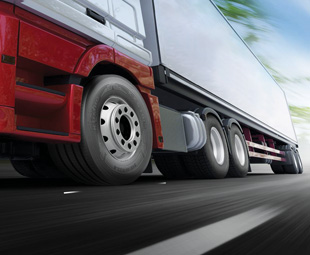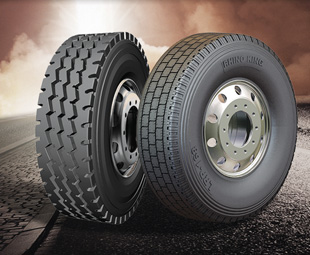Cheap imports threaten the global tyre market

More countries are considering anti-dumping tariffs on cheap imported tyres, which are threatening tyre markets across the globe. MARISKA MORRIS investigates
Tyre manufactures accusing Chinese companies of “dumping” cheap tyres on the local market is not a new phenomenon and is spreading across the globe. In 2009, former United States (US) President Barack Obama approved a tariff of 25 to 35 percent on light-truck tyres imported from China for three years.
The following year, the number of tyres imported to the US from China dropped by 28 percent and the number of tyres manufactured locally rose by nearly 14 percent. However, experts believe this had very little to do with the tariff and more with the recovering economy at the time. Current US President Donald Trump wants to put a 45-percent tariff on all goods imported from China.
Another country seriously debating anti-dumping tariffs is India. The number of truck and bus tyres that are imported has grown by nine percent to 120 000 units per month in 2017. These tyres account for 40 percent of the replacement demand in India.
Most of the tyres imported into India are from China (92 percent). The Indian Automotive Tyre Manufacturers’ Association is now pleading with India’s Ministry of Commerce to impose anti-dumping duty tariffs.
In 2012, the South African Tyre Manufacturers’ Conference (SATMC) unsuccessfully applied to the International Trade Administration Commission of South Africa to impose anti-dumping duties on tyres imported from China. After this application failed, the SATMC approached the South African Revenue Service (SARS).
It proposed a mass-based methodology to determine tyre import duties in 2016. SARS rejected this proposal stating that it would infringe on the World Trade Organisation and General Agreement on Tariffs and Trade rules. Despite these failed attempts, the SATMC is still looking for ways to regulate the importation of cheap tyres.
 In an interview with Business Report, SATMC chairman Riaz Haffejee claimed that tyre importers under-declared the value of the imported tyres.
In an interview with Business Report, SATMC chairman Riaz Haffejee claimed that tyre importers under-declared the value of the imported tyres.
“Cheap imports drive down the quality of tyres we have on the roads, which increases the risk of accidents and breakdowns,” says Yoliswa Nkomo, operations marketing manager at Michelin Tyres.
“Cheap imported tyres are rarely retreaded, which puts the retread market at risk. Resources are wasted in attempting to retread these tyres, or having the casings fail once they have been retreaded. The question of the quality control of the cheap imported tyres is also a factor,” Nkomo notes.
“The biggest concern, (which does not affect only the tyre industry) is the environmental impact of cheap imports. It results in the replacement of new tyres and casings at a much faster rate.
“A quality casing can be retreaded multiple times and therefore has a much smaller impact on the environment. Cheap imported tyres have a shorter lifespan, which results in more tyres in the landfills,” Nkomo says.
It is also important to protect the local market to secure job opportunities. “The biggest difference between locally manufactured and cheap imported tyres is the creation of jobs and the support of local talent,” Nkomo says. It is estimated that the local tyre manufacturing industry provides 5 500 people with direct employment.
Another factor to be considered is that the Recycling and Economic Development Initiative of South Africa (Redisa) was placed in provisional liquidation in early June. It is the only approved tyre-waste plan for South Africa. Water and Environmental Affairs Minister Edna Molewa filed an urgent application for the liquidation shortly after Redisa announced it would no longer collect tyre waste.
Redisa cited a lack funds as its reason for halting all operations, due to changes in the environmental tyre levy. Since February, all tyres have been levied at R2,30 per kilogram. Instead of these funds being paid directly to Redisa, they are now paid to SARS and deposited into the National Revenue Fund. Budget allocations are then made to Redisa through the Department of Environmental Affairs.
In 2012, various organisations, including the SATMC, launched court applications opposing the approval of Redisa. They urged Molewa to approve more than one tyre-waste plan for the country.
If Redisa were to close, it will have a massive impact on the tyre industry, as dealers will no longer have a method of removing or disposing of waste tyres. This will most likely result in a growing number of tyre-waste at landfills. It will also have a significant impact on jobs.
In her address to parliament regarding the 2016/17 Department of Environmental Affairs budget vote, Molewa stated that 226 small businesses and 3 112 jobs were created through Redisa.
While this issue is being resolved, Nkomo suggests government assist the industry by controlling cheap tyre imports.
“Government can perhaps increase the level of quality control that goes into the production of the imported tyres, or limit the number that can be imported. It can also increase the import tax on Chinese tyre imports,” says Nkomo.
She believes that the tyre industry can also assist in preventing cheap tyre imports by providing education to its clients. “Education and information needs to be passed on to the end users and dealers about the pitfalls of purchasing cheap, inferior products, and the effect it has on local jobs, the environment and the safety of all concerned,” Nkomo concludes.
Published by
Focus on Transport
focusmagsa



 Big news from FOCUS on Transport + Logist
Big news from FOCUS on Transport + Logist


 !
Starting 1 April, every
!
Starting 1 April, every


 FUSO: Driving the Future of Mobile Healthc
FUSO: Driving the Future of Mobile Healthc



 A brand
A brand




 Wondering about the maximum legal load for a
Wondering about the maximum legal load for a 
 The MAN hTGX powered by a hydrogen combus
The MAN hTGX powered by a hydrogen combus

 Exciting News for South African Operators
Exciting News for South African Operators


